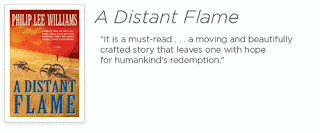Philip Lee Williams, continued
But how can one do that and still publish? The answer for me was to hook up with a small but aggressive academic press that was interested in highly literary works. That press is Mercer University Press in Georgia, which is fairly young and eagerly trying to make a name for itself as a literary press. Here, I will be publishing the high-art literary books I've been writing for years but haven't really been able to publish in New York. For instance, last fall, Mercer published my 450-page epic poem The Flower Seeker, based on the life and writings of 18th century naturalist and artist William Bartram. This fall, Mercer will be publishing my 1,000-page novel The Divine Comics: A Vaudeville Show in Three Acts. It's a prose re-imagining of Dante's Divinia Commedia, and a book I've been working on for some 28 years. Others along the same lines will follow--finished manuscripts I've written over the years with a hope that some day I would find a press willing to go with me.
Mercer is aware that my promotions will be virtual rather than personal, and they are fine with it. Of course, this approach may not help sales, but with these kinds of books, it probably won't hurt them much, either.
So for me, it's the best of both worlds: publishing more experimental manuscripts (all of them wildly imagined black comedies, by the way) while not having the stress of the road and motels and the preparation of speeches.






